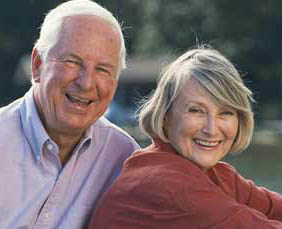|
|
Opting Out Of Retirement
By James E. Larcombe, The Associated Press
July 19, 2004

Ask Georges de Giorgio how his job is going and he will like likely answer with a question.
Something like "which one?"
The 75-year-old Great Falls resident has three paying jobs and does steady volunteer work on the side.
The colorful de Giorgio, who was raised in Chile and worked for many years as a sea captain plying the Pacific, works at the Ursuline Centre in Great Falls six days a week, puts in 40 hours a month with the Cascade County Historical Society and does on-call work with Stray Moose Productions, a local video production company.
"I enjoy each one of them," de Giorgio said of the jobs. "Each one has a lot to offer."
For many older Americans, retirement is not a viable option; many are postponing retirement, while others are going back into the work force, driven by personal or financial reasons.
The trend is evident in the number of older workers -- the number of people 55 and above in the work force rose to 22.7 million in May, up from 22 million in 2003 and 20.7 million the year before that, according to the U.S. Bureau of Labor Statistics.
The need to work can be explained in part by money problems -- AARP estimates that 1 in 10 Americans age 65 and over lives below the poverty level, explaining at least part of the phenomenon. Though most seniors aren't technically poor, many nonetheless struggle to make ends meet because of limited savings, expensive medications to buy or the loss of a spouse.
While de Giorgio would hardly describe himself as poor, his job sailing ships, which he learned in his early teens, offered no pension when he retired at 65.
Working a couple of years for a high-tech company in Los Angeles helped qualify him for a small Social Security check, but its hardly enough income for a comfy retirement.
His job at the Ursuline Centre, where he does security work and a wide variety of other tasks, includes living quarters and meals.
"It helps a lot to get the room and board," he said.
He works as an archive assistant for the local historical society. At Stray Moose, he's called on for his Spanish speaking skills for voice-over work.
"I've done hundreds and hundreds of commercials," de Giorgio said.
Others find employment critical to their mental well-being -- contrary to how they expected to feel in their golden years.
"The money helps, don't get me wrong, but that wasn't the ultimate goal," said Ray Clark, 68, of Springfield, Mass., who took a part-time job at the Basketball Hall of Fame because he found retirement boring.
Clark, who spent much of his life as a machine operator for a company that makes corrugated boxes, said he would stick with his current gig -- a minimum wage job -- "until I can no longer do it."
Such commitment is a key attraction for hiring older workers, said Bill Himmelberg, whose family owns the McDonald's franchises in Great Falls.
While he doesn't necessarily seek out older workers, "we love to get them," he said.
Older workers are punctual, have a good work ethic and often have good customer service skills, Himmelberg says.
With crews made of lots of younger workers "it's just nice having that maturity," he said. "They just provide a nice balance for us."
That, it turns out, is what many U.S. employers are looking for these days and, to help find it, they're turning more frequently to the growing pool of older workers, according to human resources executives and job-training specialists.
Home Depot Inc., CVS Corp., Anheuser-Busch Cos. and dozens of other major corporations have partnered with or contacted AARP, which recently started a program to identify job-seeking seniors and match them up with the right employers.
This effort came about because executives identified a dearth of younger workers, particularly in the areas of retail, health care and transportation, according to Jim Seith, national director of the AARP Foundation, a sponsor of the Senior Community Service Employment program.
Moreover, the Bureau of Labor Statistics estimates there could be a 3 million-person shortfall in the labor force by 2010 -- when the oldest boomers could conceivably begin retiring.
For de Giorgio, the jobs provide more than money.
"You've got stay active," he said.
That's not a problem in his case. Along with enjoying hiking, canoeing and mountain biking, de Giorgio is a volunteer docent at the Lewis and Clark Interpretive Center and also volunteers at Giant Springs with the state Fish, Wildlife and Parks department.
"I'm always volunteering," he said. "I was a Boy Scout when I was young. You have to do your daily good deed."
Georges de Giorgio shows posters and documents in the process of being archived. The 75-year-old works for the Cascade County Historical Society and has two other jobs.
|
|



